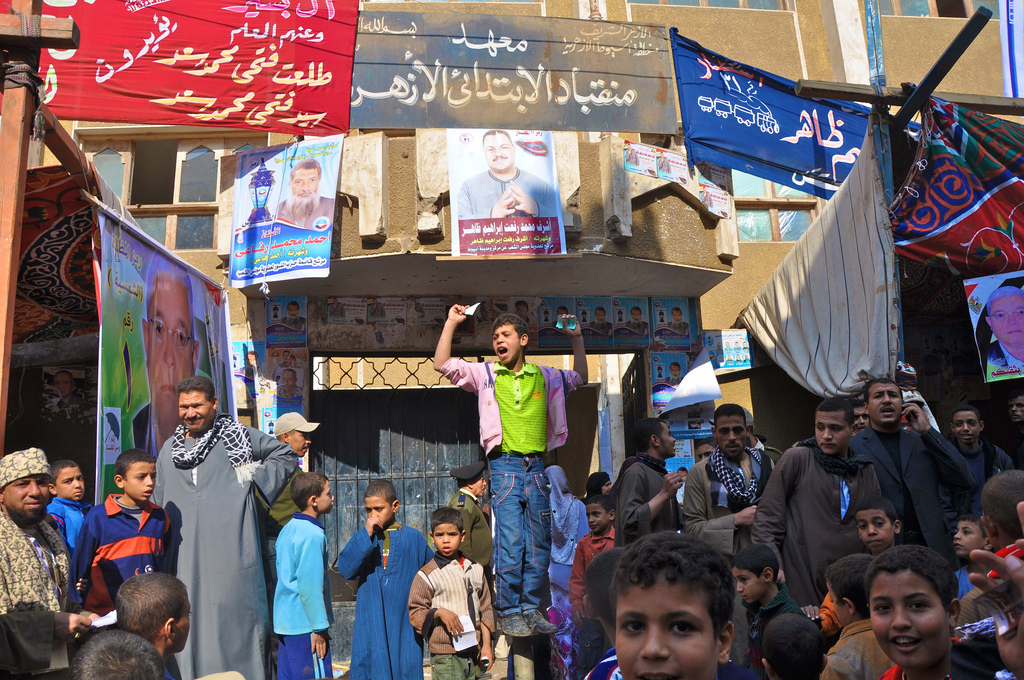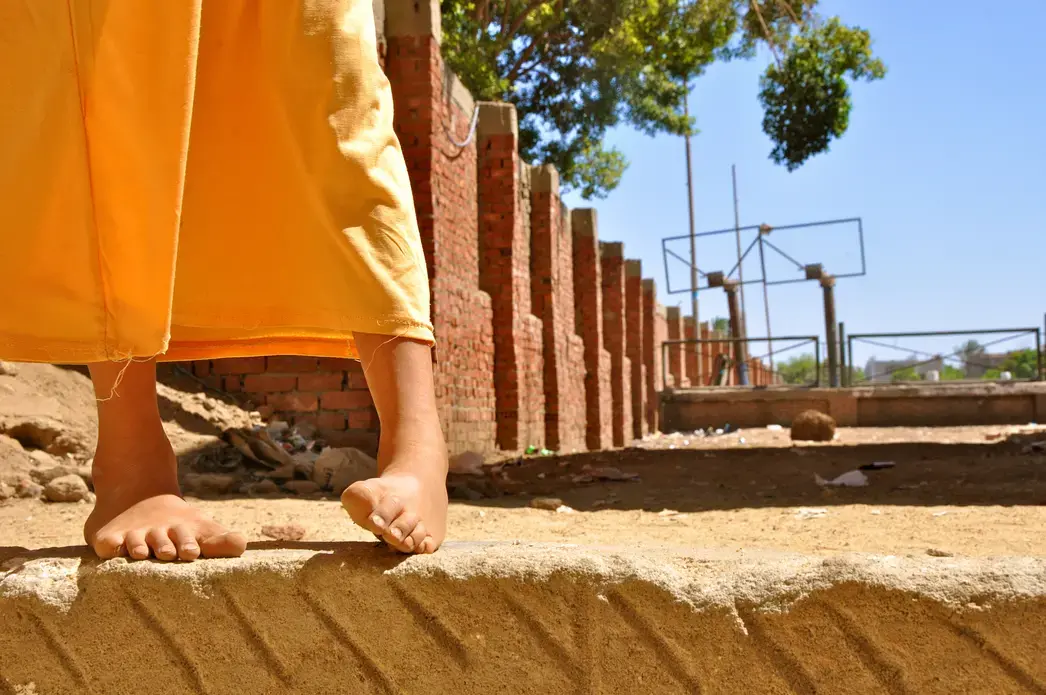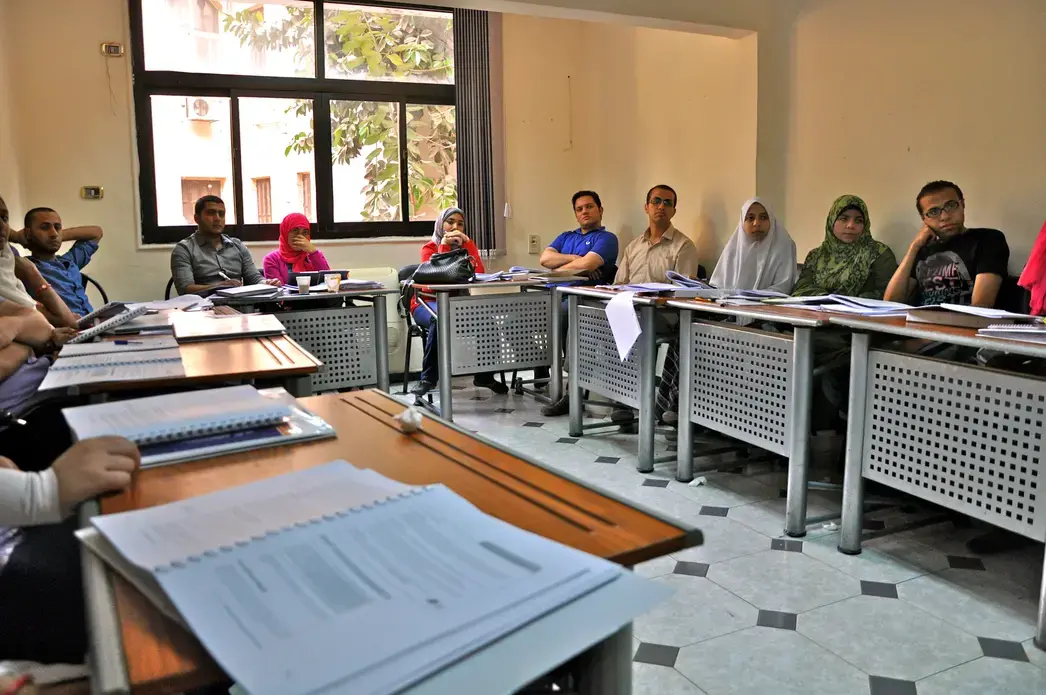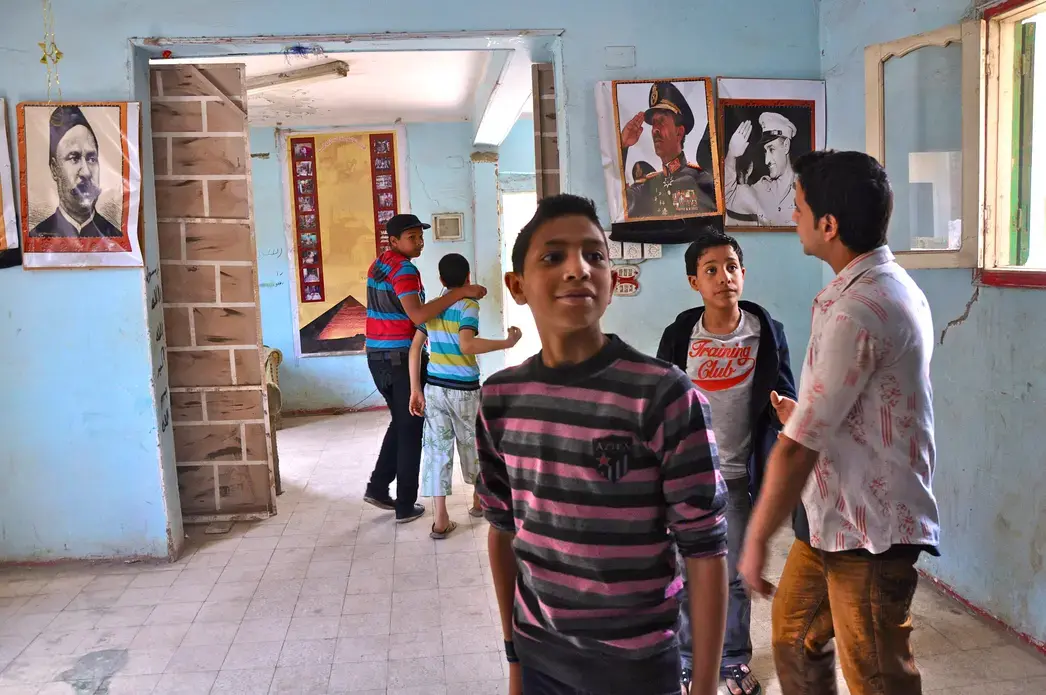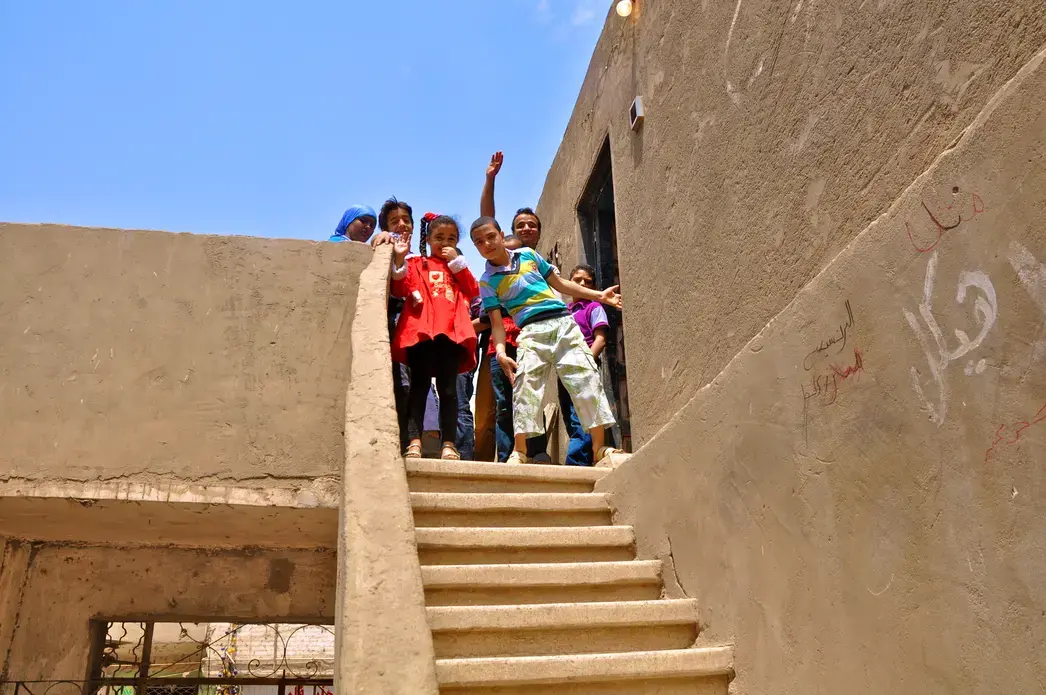Two and half years after the country's uprising began, Egypt's fledgling democracy is stillborn, stubbornly stuck between its past and future. As the government deals (and fails to deal) with the country's protracted political problems, Egypt's education system remains festering on the sidelines.
I've written extensively about the bleak status quo. In a recent World Economic Forum report on global competitiveness, Egypt ranked 137 in the world out of 144 countries in primary education meeting the needs of a competitive economy, with just $129 per year being spent on each student. (The U.S. spends almost 80 times as much). Less than 10 percent of schools pass the national standards for "quality" education. Egypt's literacy rate is 66.4 percent, ranked 157 out of 184 in a 2011 United Nations Development Program report. Meanwhile, according to Egypt's official statistical agency, unemployment has skyrocketed to almost 13 percent, with unemployment rates around 41 percent for those between 20 and 24 years old and 25 percent for those between 25 and 29 years old.
In Upper Egypt and regions outside Cairo, these statistics – like almost all development indicators – are most glaring. I frequently see schools that look more like rank penitentiaries than hubs of learning. I meet students and teachers who are on the precipice of much-needed sleep rather than inspiration. And forget technology. One is hard-pressed to find a suitable desk or stable electricity in most schools. Whether I'm researching a story on domestic violence or political Islam, almost everyone brings up the lack of quality education as a weighing burden on his or her lives. While the government and political discourse are swept up in political deconstruction and construction, it's hard to envision much of a progressive future for a country when almost half of the population in rural centers can't even read that discourse.
Still, when I talk to members of the ruling Muslim Brotherhood or even the opposition, true monumental reform of the system is something they all emphatically agree upon, nodding their heads in chirpy unison, but they quickly fall silent when pushed to articulate plans. One political figure recently told me the country has "bigger fish to fry." With a new constitution shoved through that's something less than assuring on rights and no parliament in sight, one can agree for a fleeting moment. But his point quickly disintegrates against a high-octane combustible tableau of frustrated and disenfranchised youth, unskilled and unemployed, soon becoming a lost generation.
As the government continues to turn a blind eye, a few innovative ideas have popped up, hoping to fill in holes that have become so big you could drive a truck through them.
Less than six months ago, a few Egyptian entrepreneurs decided to start their own version of the popular Khan Academy in Egypt, Nafham ("We understand" in Arabic). The web-based start-up features crowd-sourced video tutorials on a range of subjects. The group subdivided the Egyptian public school curriculum (grades 1-12) into lessons that can be explained in 5-15 minute videos, covering all lessons mandated by the government.
In the course of two months, Nafham's staff of teachers created around 1,400 videos, while 600 videos were crowd-sourced — reviewed and approved by the staff.
According to some estimates, Egyptian families spend more than one billion dollars on private tutoring to make up for the gaps borne from a deficient education system. The cost of private tutoring often amounts to almost a quarter of a family's income, essentially making "free" public education an ironically expensive endeavor. More than a few public school teachers have admitted to me off the record that they teach the bare minimum in class, so that they can earn a profit from the same students in private tutoring sessions. Public school wages rarely amount to more than $300 a month.
The stakes are high, if not life-defining, for students and families. Egypt's final secondary school exams are a rite of passage for students. Their score alone charts their future. If they don't do well, they won't be awarded a place in college. The finality of standardized exams effectively tracks out some students, whose best second option is vocational school. Yet students from wealthy families escape forced tracking by paying for private education. "If you can't pay for private school in Egypt, and only maybe one percent of the population can, you'll be walking uphill for most of your life," says Kareem Fattah, 20, a vocational student from Sharqeyya, the province from where President Mohammed Morsi hails.
Nafham hopes to provide an alternative for some families. However, as much of my Pulitzer Center project, "Egypt: The Country Outside the Square" consistently asks and tugs upon at its core: What about the 70 percent of Egyptians who don't have Internet access, those who desperately need these innovations? How does it all boil down for the overlooked people (and majority) on the periphery who may be just as crucial to the country's success?
Nafham says it hopes to form group viewings in some villages, and is in talks with some companies to offer USBs with Internet access to groups throughout the countryside. Still, this rural and urban divide may prove ultimately problematic for the start-up, as it has for so many efforts in Egypt, if not the uprising itself. Technology is never the most challenging component in these endeavors. It's establishing the access and infrastructure to support it that keeps one up, and still behind, at night.
Another innovative education initiative is Teach for Egypt, a startup created by Nada Ramadan, a 24-year-old Egyptian Georgetown University graduate student. Her idea made her a top finalist at an entrepreneurship competition last year. Based on the Teach for America model, Ramadan plans to recruit ambitious college graduates (most from within the Egyptian community and diaspora), to commit to a two-year service in which they are trained extensively, and placed in underprivileged schools to employ creative and effective teaching strategies in their classrooms. The initiative is ingenious, but Ramadan says she's running into problems while trying to implement. Institutional bureaucracy in Egypt leaves little room for productivity, let alone creativity and innovation.
But Ramadan, like the founders of Nafham, say providing solutions to social problems is simply a necessary extension of the uprising, though one so few take on.
"We could all stand around and protest that the government is failing us, or we could go out and offer the solutions," she said, before the project seemed completely Sisphyean. "So, that's what we're trying to do."


